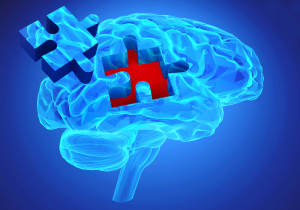by
Thomas Dworetzky, Contributing Reporter | January 16, 2017
Getting “your bell rung” just once could be worse for you than you think.
A new study by Boston University researchers has now shown that even moderate traumatic brain injury may cause brain atrophy and cognitive decline in those with a genetic predisposition for the disease.
The researchers looked at a group of 160 Iraq and Afghanistan war veterans.



Ad Statistics
Times Displayed: 2680
Times Visited: 20 Fast-moving cardiac structures have a big impact on imaging. Fujifilm’s SCENARIA View premium performance CT brings solutions to address motion in Coronary CTA while delivering unique dose saving and workflow increasing benefits.
“Most of the research that’s come out on concussions looks at repetitive concussions in contact sports,” explained lead author Jasmeet Hayes, assistant professor of psychiatry at the BU School of Medicine and research psychologist at the National Center for PTSD, VA Boston Healthcare System,
told the Boston Herald. “But for the most part, single concussions or concussions that have been spread out over one’s lifetime have largely been ignored or thought to be negligible.”
The researchers used MR brain imaging to examine 160 veterans, some of whom had histories of single or multiple concussions.
"We found that having a concussion was associated with lower cortical thickness in brain regions that are the first to be affected in Alzheimer's disease," Hayes said in a BU statement about the study.
Cerebral cortex thickness was studied in seven parts of the brain known to show the first signs of the disease, while seven other areas were measured as controls.
Also of note, signs of brain abnormalities showed up in a relatively young group, averaging just 32 years of age.
That makes the findings alarming, but with some hope of promise in the future, with more research.
“A lot of times when you get that Alzheimer’s diagnosis, the brain is far gone at that point, and medication can only do so much,” Hayes told the Boston newspaper, adding, “but if we try to intervene at an earlier point in people’s lives, that’s where the important part of this research is going to come in.”
Of practical note, Hayes advised that these findings underscore the need “to document the occurrence and subsequent symptoms of a concussion.” The researcher stressed that such a history is vital even if the person “is able to shake it off fairly quickly, given that, when combined with factors such as genetics, the concussion may produce negative long-term health consequences."
However, Hayes stressed that those lacking the genetic predisposition toward the neurodegenerative ailment will most likely be fine post-concussion. They will “go back to baseline functions within three to six months,” she told the paper. Further research, she hoped, would help identify those at greater risk earlier.

